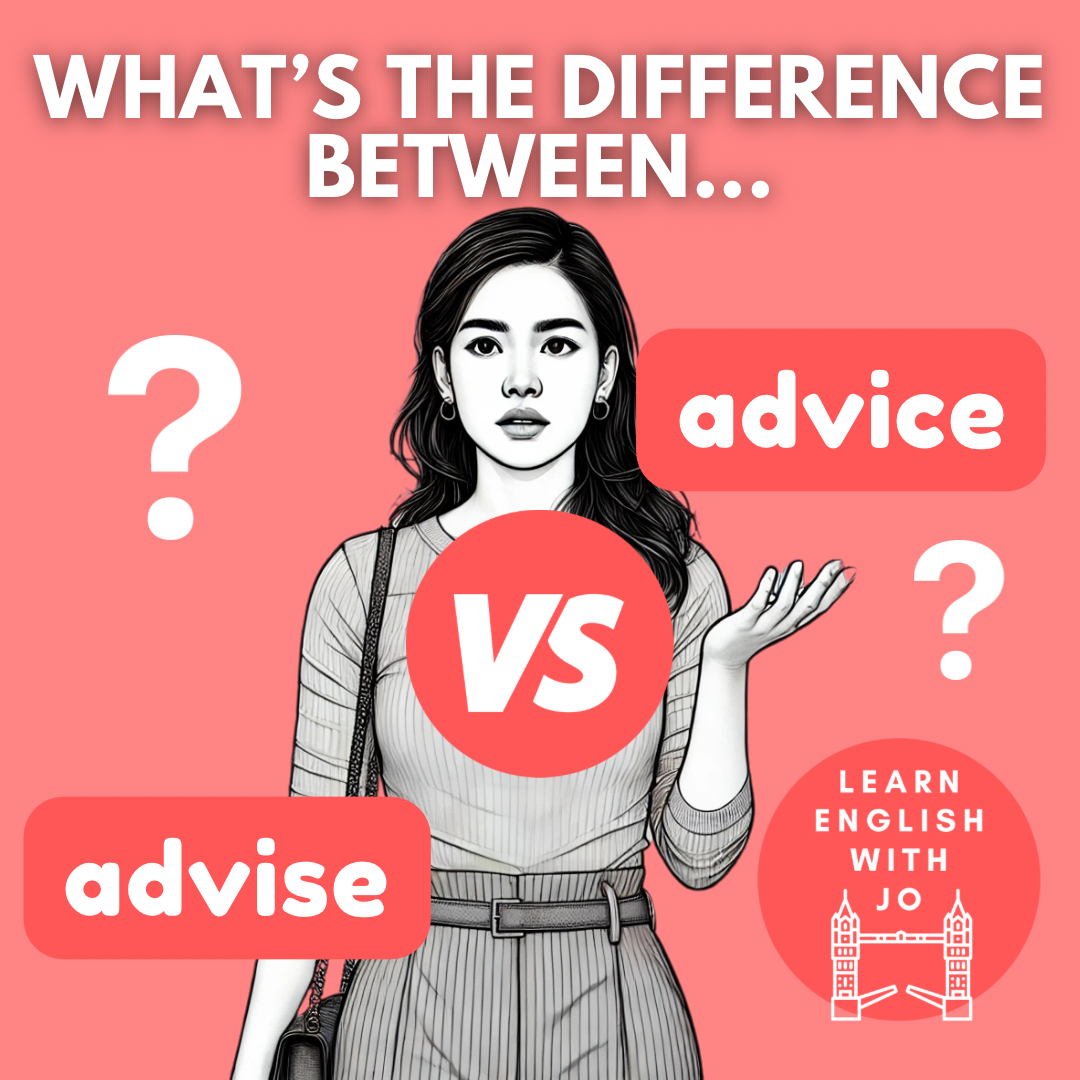Using Advice vs. Advise in English: A Simple Guide
If you're an English learner, you’ve likely come across the words ‘advice’ and ‘advise’ and wondered if they’re the same thing. Although they look similar, their meanings and usage are quite different. In this blog post, I'll break down the difference between these two words and show you how to use them correctly in your writing and conversations.
What’s the Difference?
The key difference lies in the part of speech:
Advice (noun): A recommendation or suggestion about what someone should do.
Example: She gave me some great advice about starting my new job.Advise (verb): The act of giving a recommendation or suggestion.
Example: I advise you to review your notes before the exam.
How to Use Advice
Since ‘advice’ is a noun, it refers to the actual information or suggestion you receive or give. Here are some tips for using ‘advice correctly:
Uncountable Noun: ‘Advice’ is uncountable, which means you cannot add an ‘s’ to it. You can’t say advices. Instead, use phrases like:
Some advice
A piece of advice
Lots of advice
Example: Can you give me some advice about learning English?
Common Collocations: ‘Advice’ is often used with verbs like:
Give advice
Take advice
Follow advice
Seek advice
Example: He followed the doctor's advice and started exercising regularly.
How to Use Advise
‘Advise’ is a verb, so it refers to the action of offering a suggestion. It often appears in formal or professional contexts but can also be used in casual conversation.
Verb Form: It changes depending on the tense:
Present: I advise
Past: She advised
Present Continuous: They are advising
Example: The lawyer advised him to settle the case out of court.
Structure: "Advise" is commonly followed by:
An object (advise someone): I advise you to stay calm.
A clause: She advised that we leave early.
Common Phrases:
Advise against something: The teacher advised against skipping class.
Advise on something: He was asked to advise on the project’s timeline.
Quick Practice
Choose the correct word (advice or advise) to fill in the blanks:
My teacher always gives excellent ______ about studying for exams.
I would strongly ______ you to speak to a financial advisor before investing.
Can you give me some ______ on how to improve my English?
She ______ her team to double-check the report before submitting it.
(Answers: 1. advice, 2. advise, 3. advice, 4. advised)
Remember, ‘advice’ is what you give or take, and ‘advise’ is the action of giving it. With practice, you’ll feel more confident using these words in the right context.


